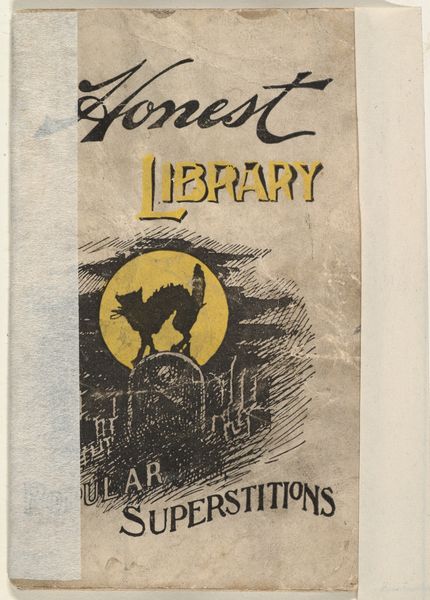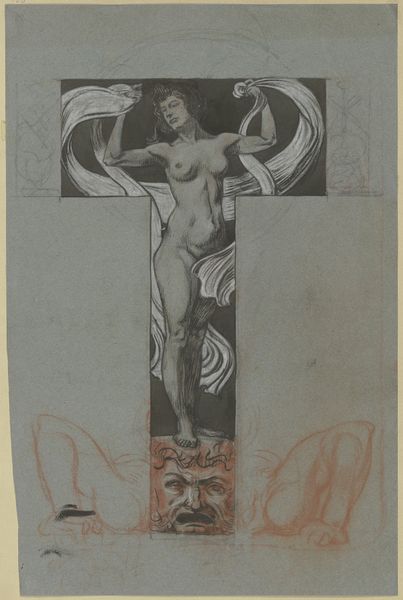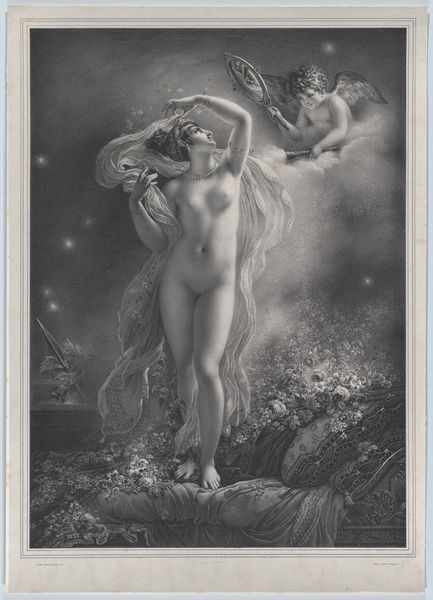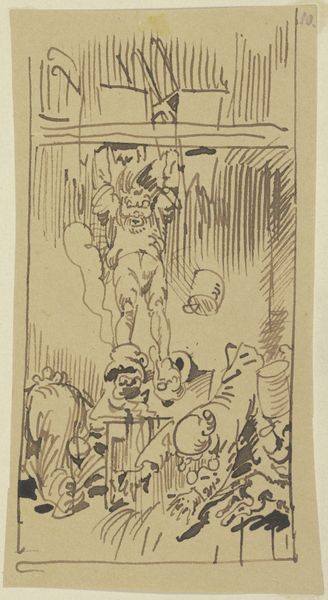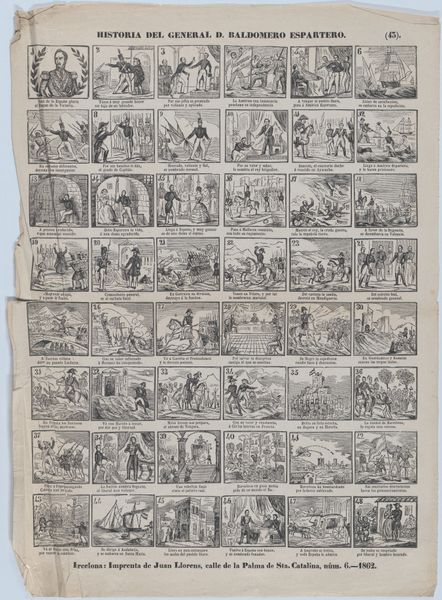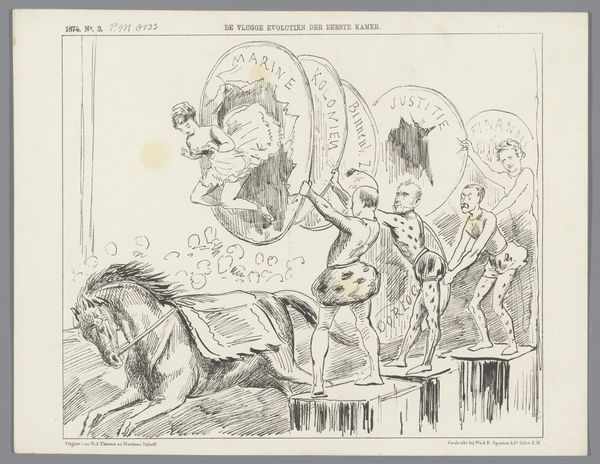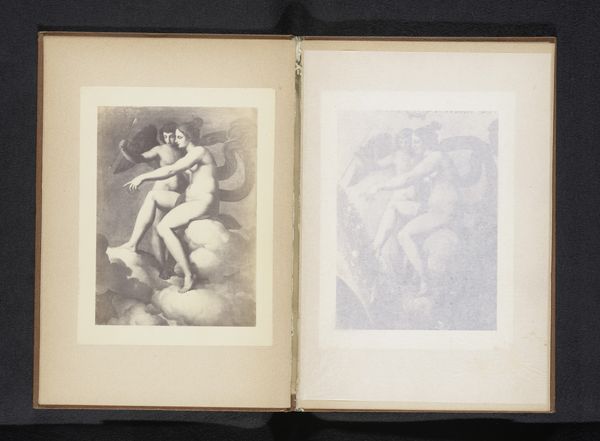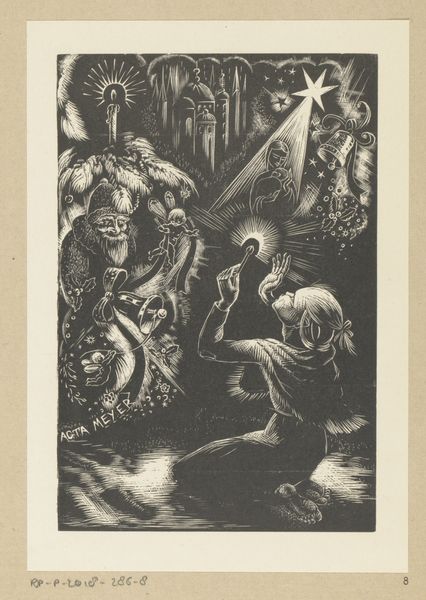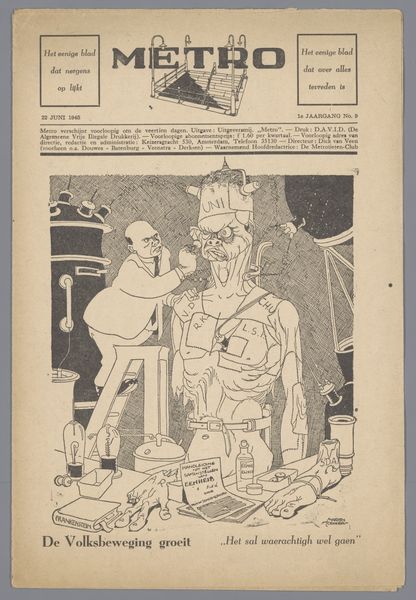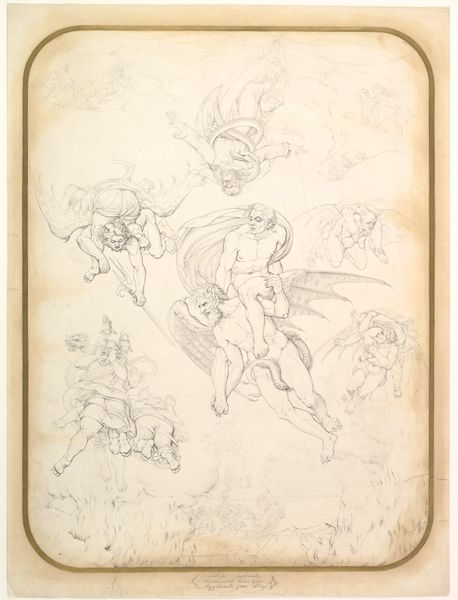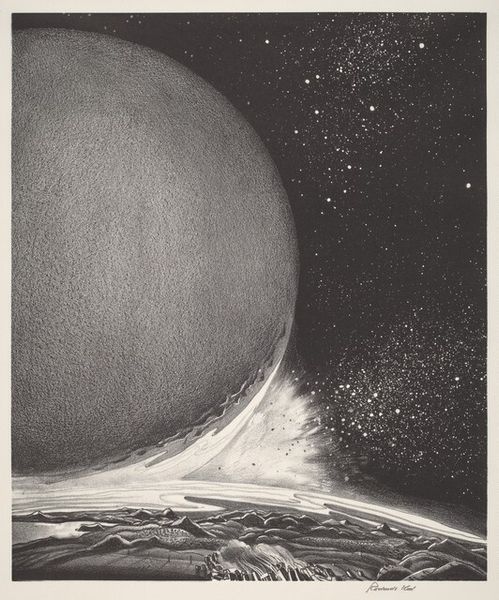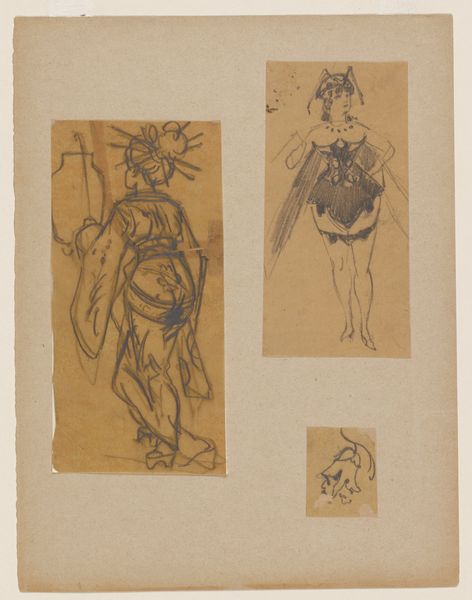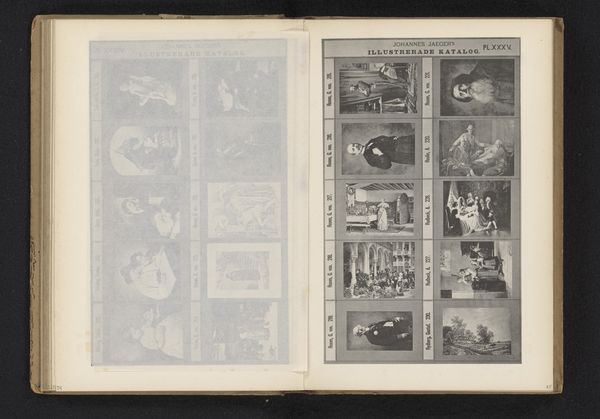
Dimensions: support: 251 x 381 mm
Copyright: © The estate of Eduardo Paolozzi | CC-BY-NC-ND 4.0 DEED, Photo: Tate
Editor: Here we have "The Ultimate Planet" by Sir Eduardo Paolozzi. It looks like a collage incorporating old sci-fi magazine covers. It's so intriguing! What can you tell me about it? Curator: Paolozzi's use of mass media imagery speaks volumes about post-war culture. He critiqued the pervasive influence of American consumerism and the idealization of technology by appropriating these pulp magazine covers. The collage brings high art into conversation with what was considered "low" or popular culture. Editor: So, it's less about the sci-fi itself and more about what it represents? Curator: Precisely. Consider the socio-political context. These images reflected anxieties and aspirations surrounding technological advancement. Paolozzi is prompting us to consider who controls these narratives and what their impact is on society. Editor: That's fascinating! I’ll definitely look at this differently now. Curator: Indeed. Art like this encourages us to question the stories we are told.
Comments
tate 3 months ago
⋮
http://www.tate.org.uk/art/artworks/paolozzi-the-ultimate-planet-t01467
Join the conversation
Join millions of artists and users on Artera today and experience the ultimate creative platform.
tate 3 months ago
⋮
Since childhood, Paolozzi has kept scrapbooks of images, mostly drawn from American magazines, which he used as a primary source for these collages. They reflect his fascination with popular culture and technology, as well as the glamour of American consumerism. The title of the series refers to Henry Ford’s famous statement that ‘History is more or less bunk..... We want to live in the present’. It reflects Paolozzi’s belief that his work should reflect the dynamism of contemporary culture. Gallery label, March 2007
